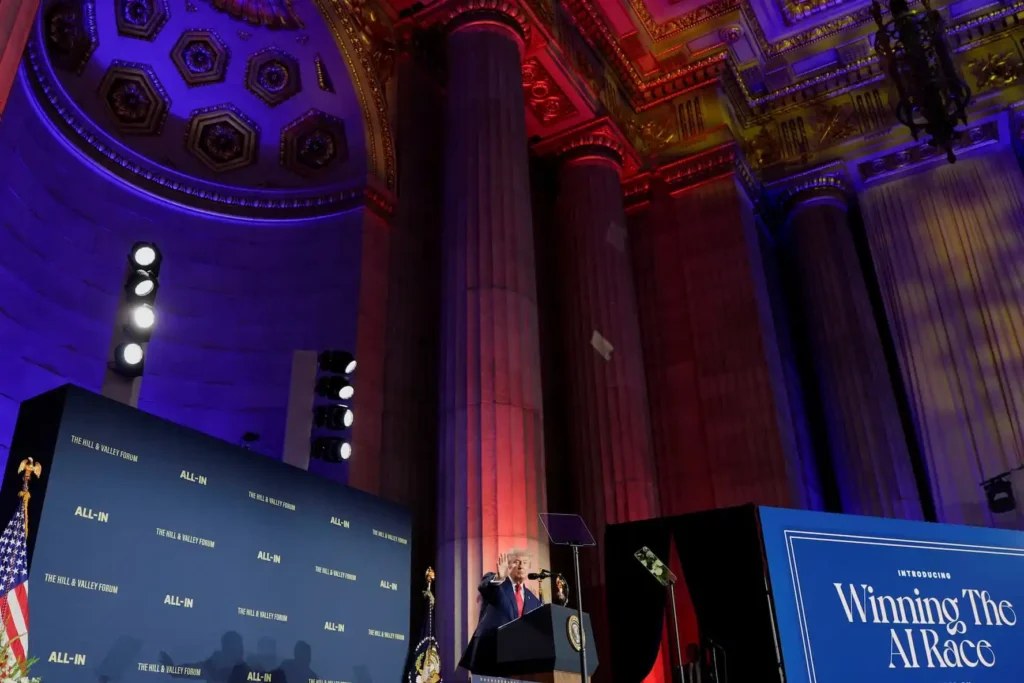The United States government is emphasizing innovation as a key strategic priority. US innovation policy now focuses on supporting technology, research, and development to strengthen the nation’s competitiveness. Officials say that prioritizing innovation helps both commercial growth and scientific discovery. This approach aims to ensure the U.S. remains a global leader in advanced technologies.
Government support for innovation shows up in funding programs and agenda-setting. Federal initiatives provide resources for research institutions, startups, and private companies. These funds allow organizations to develop new technologies, scale production, and bring ideas to market faster. Analysts note that policy support acts as a multiplier, amplifying both private investment and public research efforts.
Technology-focused policy covers multiple sectors, including artificial intelligence, semiconductor manufacturing, biotechnology, and clean energy. By directing resources to these areas, the government encourages innovation where it can have the greatest impact. Programs often include grants, tax incentives, and partnerships with universities and private companies. These measures reduce risks for innovators and accelerate product development.
Research institutions are benefiting from increased government attention. National laboratories and academic centers receive funding to conduct advanced studies in AI, robotics, biotechnology, and other emerging fields. These programs help train a skilled workforce, build critical infrastructure, and create breakthroughs that can be commercialized. Analysts say that linking research with government policy strengthens the innovation ecosystem.
Startups and established companies also see benefits. Federal support can help businesses bring new ideas to market faster. It reduces financial and operational risk while encouraging private investors to participate. Startups in AI, robotics, biotechnology, and clean energy gain an edge when policy aligns with their goals. This combination of public support and private innovation drives growth and economic impact.
The focus on innovation is part of a broader economic and strategic plan. Government officials recognize that technology is central to long-term competitiveness, national security, and economic resilience. By emphasizing innovation in policy, the U.S. ensures it can respond to global challenges, maintain a skilled workforce, and remain at the forefront of technological advancement.
Funding initiatives are complemented by regulatory support. Policies that streamline approvals, encourage ethical technology use, and protect intellectual property make it easier for innovators to succeed. Experts say that clear guidance and strong enforcement foster trust and stability, which are essential for commercial and research success.
Education and workforce development are key components of innovation policy. Programs aim to train engineers, data scientists, and technical experts needed to support advanced technologies. Universities, vocational programs, and public-private partnerships help equip the next generation of workers with skills in AI, biotechnology, robotics, and clean energy technologies. Skilled talent is critical for sustaining long-term innovation.
Global competitiveness is also a factor. US innovation policy helps the country maintain leadership in technology, research, and development. International collaboration is encouraged, but domestic capabilities remain a priority. Analysts say that a strong policy framework ensures that the U.S. can continue to attract investment, talent, and research projects that drive economic and technological growth.
The economic impact of innovation-focused policy is significant. Investments in technology, research, and talent generate jobs, boost productivity, and create high-value industries. Companies that benefit from government programs often reinvest in R&D, expand operations, and create additional employment opportunities. This cycle strengthens both regional and national economies.
In summary, US innovation policy is shaping the future of technology and research. By providing funding, supporting research institutions, fostering startups, and developing talent, the government amplifies commercial and research activity. Analysts say that strong policy focus on innovation positions the United States for long-term competitiveness, technological leadership, and economic growth.


